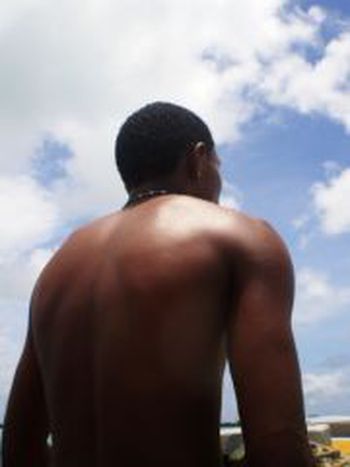
Orwellian EU Borders?
Published on
By Bibbi Abruzzini Photo: Santosh Thatal "Dear Mr Laitinen, I am writing to inform you that I have decided to open an own-initiative inquiry into the implementation by Frontex of its fundamental rights obligations." With this agglomeration of words European Ombudsman P. Nikiforos Diamandouros begins the letter that questions the practices of the EU border surveillance agency Frontex.
Fleeing from their homelands in an increasingly globalized world - but perhaps decreasingly human - thousands of refugees and immigrants, in pursuit of a 'European dream' or escaping from their national nightmares, find themselves nose to nose with the EU border surveillance agency, Frontex.
Enabling Frontex "to do more"
In September 2011 the European Parliament approved a stronger mandate for Frontex which reinforced its operational capacities. A 'promotion' that among others, gave Frontex the possibility to buy or lease its own equipment -boys' games such as vessels and helicopters- and to establish working arrangements in third countries, plus personnel, border guards, support and equipment from Member States.
If we consider Frontex's technical equipment it is almost a futuristic chimera, a fully operational but sometimes jammed mechanism: those coming from the opposite shore of the Mediterranean are first identified, analyzed, and finally they are placed or sent back, just like merchandise some may argue. To 'humanize' the agency a Consultative Forum on Fundamental Rights has been established and a Fundamental Rights Officer (FRO) designed. According to the new Resolution, in cases of human rights violations, Frontex will suspend or terminate its missions and the agency is bound both by the European Charter of Fundamental Rights and the UN principle of ‘non-refoulement’ of migrants. The decision to hand more money, independence, power -thus trust- to Frontex, however, has been criticized by the many who believe and fear that there are not enough guarantees on human rights protection. NGOs, the Green group in the European Parliament, and more recently the European Ombudsman, P. Nikiforos Diamandouros, suggest that Frontex may have been involved in human rights violations.
Frontex: "wolf in sheep's clothing"?
Behind each refugee, asylum seeker, or economic immigrant there is the story of a human being who, for various social and personal reasons, leaves 'home' to embark on a journey hand in hand with death, destination Europe. Odysseys sometimes transformed in tragedies.
In March 2011, the Green group in the European Parliament published the study "Frontex Agency: Which Guarantees for Human Rights?" giving evidence of lack of transparency and fundamental rights violations by Frontex. The report includes evidence of inhuman and degrading treatment of immigrants, discrimination, and the infringement of the rights of refugees for example as regards the UN 'non-refoulement' principle.
Human Rights Watch denounced Frontex's practices as well in its report entitled “The EU’s Dirty Hands: Frontex Involvement in Ill-Treatment of Migrant Detainees in Greece” . From the title it is not difficult to understand the content. '‘Frontex has become a partner in exposing migrants to treatment that it knows is absolutely prohibited under human rights law,’ said Bill Frelick, Refugee Program director at Human Rights Watch. The recent decision by the European Ombudsman to investigate Frontex and its respect for fundamental rights obligations has been welcomed by many organizations and associations. European Borders, those lines traced on maps and globes are now symbols of both internal and external divisions.
Frontex is under the spotlight; 31 May 2012 is the ultimatum given to the agency that will have to answer a number of detailed questions to explain its strategy and codes of conduct for its operations.



